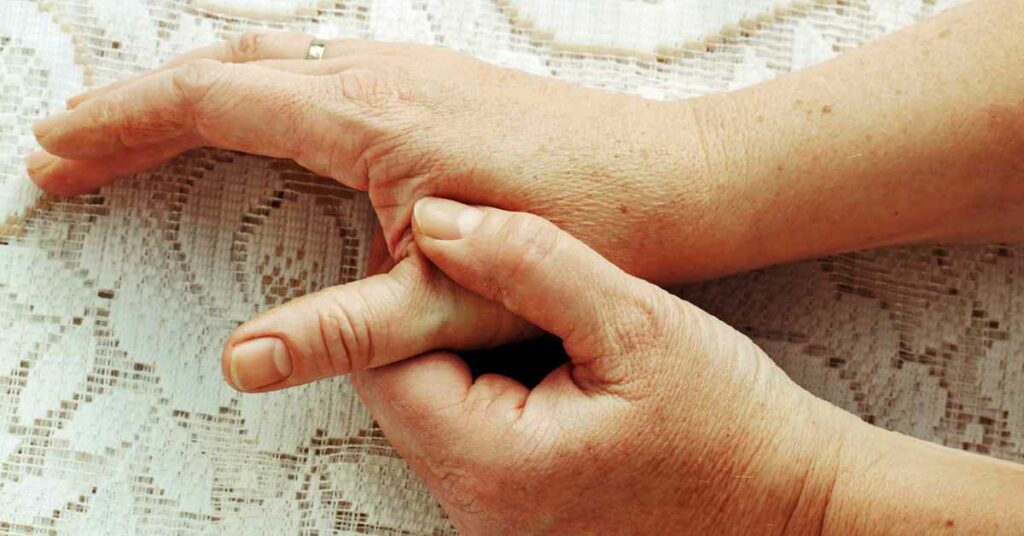Your thumb is one of the most important parts of your hand, and it’s no surprise that it can be quite susceptible to injury. In this blog post, we will discuss the most common sore thumb conditions and how to treat them. If you are experiencing any of these problems, don’t hesitate to see a doctor!
Contents
What Does Sore Thumb Mean?
If you’ve ever woken up with a sore thumb, you know how painful and uncomfortable it can be. And while an occasional ache is nothing to worry about, persistent or frequent soreness should not be ignored.
A sore thumb may look like any of the following:
- A swollen or inflamed joint
- Stiffness and swelling in your thumb’s joints or tendons
- Tenderness and pain when you move your thumb in certain directions
Don’t worry – most of these conditions are treatable and you’ll soon be back to using your thumb for all the activities you enjoy.
Possible Reasons For It
There are several different sore thumb reasons that could be causing your discomfort, and some of the most common ones include:
1. Bursitis – A bursa is a small sac full of fluid that sits between the bone and soft tissue, helping to reduce friction and inflammation. Sometimes it can become irritated or inflamed, causing pain in the thumb joint area.
2. Arthritis – If you’ve been diagnosed with arthritis or experience chronic inflammation in your joints, it’s possible that it could affect your thumbs as well as other joints in your body.
3. Repetitive Stress – Repeatedly forcing your thumb to perform the same tasks over and over can lead to soreness and stiffness, especially if you don’t take breaks often enough or use the proper techniques.
4. Thumb Sprain – If you experience thumb sprains or strains, you may find that the pain and stiffness don’t go away on their own. Instead, it’s important to seek treatment quickly so that the injury can be properly healed.
5. Tendonitis – The tendons in your thumb joints could become irritated and inflamed, causing pain and swelling.
6. Carpal tunnel syndrome – If you have pain or weakness in your thumb, and it gets worse at night, it could be a sign of carpal tunnel syndrome. This is typically caused by pressure on the median nerve in your wrist.
If you are experiencing soreness or discomfort in your thumb joints, it’s important to seek treatment right away.
When Should I Be Concerned?
Having a sore thumb is something that many people have to deal with at one point or another. It can be extremely uncomfortable and painful. You should be concerned when the sore thumb is accompanied by the following:
- Redness, swelling, or tenderness in the thumb joint
- Difficulty moving the thumb
- Difficulty gripping objects with the thumb
If you experience any of these symptoms along with a sore thumb, it is important to seek medical attention right away. A doctor can help you determine what is causing your pain and recommend treatment options that will
Treatments For Thumb Pain Relief
 Depending on the underlying cause of your condition, there are a number of different treatments that may be recommended by your doctor or physical therapist. Some options include:
Depending on the underlying cause of your condition, there are a number of different treatments that may be recommended by your doctor or physical therapist. Some options include:
Over-the-counter pain medications
Many people find relief from small doses of acetaminophen, ibuprofen, or naproxen for their sore thumb symptoms. These drugs help to reduce inflammation and relieve pain in the affected area.
Cold compresses
Applying a cold compress or ice pack to the affected area several times a day can help to reduce swelling and provide some temporary relief from the pain.
Physical therapy
A physical therapist will recommend strengthening exercises, heat or cold treatments, massage, ultrasound, or other physical rehab methods to help alleviate discomfort and promote healing.
Surgery
In more severe cases where the pain is persistent or other treatments have failed, surgery may be recommended to repair damaged tissue or relieve pressure on the affected joint. This is usually a last resort and only considered after other options have been explored.
If you are experiencing sore thumb symptoms, it is important to speak with your doctor soon. With the right care and treatment, you can find relief from your pain and get back to doing the activities you love.
How To Prevent It From Happening Again
 There are prevention tips which you can take to not worsen your already cramped thumb or to prevent it from happening again. They are:
There are prevention tips which you can take to not worsen your already cramped thumb or to prevent it from happening again. They are:
Avoid Repetitive Movements
Avoid repetitive movements which require you to use your thumb. This could include tasks such as typing or playing video games for long periods of time. If possible, try switching to other activities that do not involve the use of your thumb. For instance, you can always switch to playing music on an instrument instead of a video game controller.
Ergonomic Tools
Use ergonomic tools when performing tasks that require the use of your thumb. This includes using a handheld mouse instead of a trackpad or keyboard, or choosing keyboards and mice with thumb rests to avoid placing too much pressure on your thumb joint.
Stretches
Keep your hands and fingers flexible by doing regular stretching exercises or yoga, which can help to reduce the risk of soreness or strain in your thumbs.
Consult A Doctor
If you have chronic pain in your thumb that does not improve with rest, treatment from a medical professional may be necessary to help address any underlying causes and alleviate the pain. This could include physical therapy, acupuncture, or medications such as anti-inflammatory drugs or pain relievers.
Thumb Bracelets
Wear thumb bracelets or wristbands to support and protect your thumb joints, especially if you tend to do activities that can cause cramping or soreness.
Overall, there are many ways that you can take steps to prevent sore thumbs from happening again in the future. By staying mindful of your activities and taking care of your body, you can help reduce your risk of experiencing this type of discomfort and keep your hands healthy and pain-free.
Conclusion
In conclusion, sore thumb conditions can be very painful and inconvenient, and without treatment, they can become more difficult to control. As mentioned before, there are things you can do from the comfort of your home to help improve your symptoms and stop the condition from getting worse. You should visit your doctor if you have any of the above symptoms and they don’t improve, or if they get worse. You can choose physiotherapy if you prefer noninvasive treatment or surgery for more severe conditions.
Physical Therapy help patients recover from pain. If you’re experiencing Back pain, Shoulder pain, Knee pain, Neck pain, Elbow pain, Hip pain, or Arthritis pain, a physical therapist at MantraCare can help: Book a physiotherapy session.


